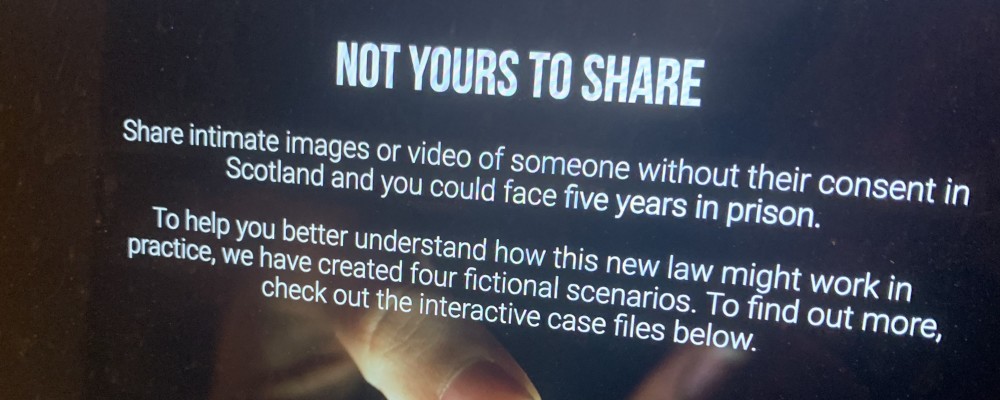Revenge Porn
Why would a divorce lawyer warn you about revenge porn during lockdown (well, any more than they would normally)?
Lots of people will think that this article doesn’t apply to them- they would be horrified at the thought of watching or supporting porn that was exploitative, or criminal. But I’m giving the warning because we have found that more and more people are finding themselves (or their teenage children) within the ambit of the criminal law relating to revenge porn unknowingly - and that can also be relevant for law issues like divorce, domestic abuse and child protection.
We’re hearing lots about the upside of social media and online connectivity just now. And we’re all more tempted than ever by the small screens, as we terror scroll the news, or mindlessly scan through photos of our friends taking their daily, government sanctioned exercise. But there’s another side to this story: some are also spending more time scrolling through online porn- you may have seen articles about the spike in traffic that porn sites have been experiencing during the coronavirus lockdown. With that spike have come concerns that there is a greater risk of risk of exploitation and abuse, including in relation to revenge porn.
Disclosing (or threatening to disclose) an intimate image which hasn’t previously been disclosed by the subject of the picture is a criminal offence under the Abusive Behaviour and Sexual Harm (Scotland) Act 2016. That’s the case if there’s an intention to cause harm to the subject of the picture or, even if not, if there’s recklessness as to the distress or harm that might be caused.
There are fairly obvious cases: where photos given in confidence are put onto Whatsapp groups, or where there are threats within a relationship to show images, as part of a pattern of controlling behaviour and domestic abuse. But, the law reform that led to the 2016 Act intended to change the national approach to a much wider set of circumstances. The definitions of ‘intimate image’ and ‘intimate situation’ are broad, the Act deals with threats as well as actual disclosure, deliberate acts and reckless acts are all included. That means that lots of people find themselves caught up this provision, often to their surprise. There’s a reason that the new law was accompanied by a public information campaign: the 2016 Act didn’t only intend to criminalise deliberately abusive behaviour but also to deter people from carelessly sharing intimate images, often people who would never have thought of themselves as potential perpetrators of an abusive crime.
So, a word of caution. Especially if you’re experiencing relationship breakdown, cooped up in lockdown. Emotions run high and you have access to photos and social media at the touch of that tiny screen in your hands. But don’t underestimate the damaging impact your actions might have on the person in those photos and remember that you too might pay a heavy price: a fine and/or imprisonment of up to 5 years.
If you have been subject to any threats to disclose intimate material, it is important to know that those threats are criminal. If you find yourself in that situation you can contact the police who are experienced in receiving such calls and should be well placed to help. The Scottish Government also have a great website- Not yours to share- which has some case studies, shows how the Police deal with these cases and provides links to organisations who can support you.
So, be careful. If you’re tempted to post an intimate photo of someone else, put down your phone.

